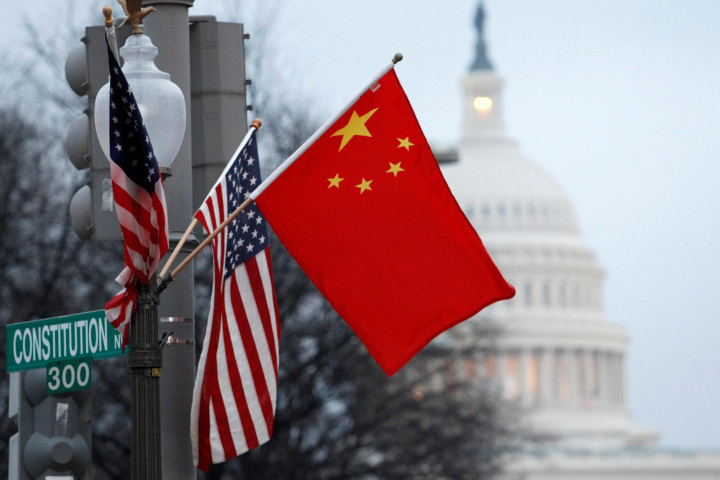
On September 26, China published a comprehensive paper outlining new proposals and actions for the future world.[1] It is «a white paper on building a global community of shared future, a grand vision serving as a blueprint for a better world raised by President Xi Jinping in 2013. By putting forward the creative idea at a pivotal moment in history, President Xi has shown the correct path for the world, building a strong consensus for international cooperation, said Foreign Minister Wang Yi», according to the official China state news agency Xinhua.
The paper presents many areas such as health, climate change, and cybersecurity on which, Beijing argues, the global community should cooperate for a shared future.
One crucial point is the coexistence of different cultures and civilizations. That is, China argues that China should be allowed to cooperate in a global world in which it respects others and calls for others to respect China as it is. It seems to be about mutual cultural respect rather than everybody’s respect for internationally accepted norms and laws. It is not stated as such, but it stresses culture rather than laws, as if culture trumps law and not the opposite.
It is a comprehensive and sophisticated effort to counter the «Cold War» mentality that springs from other parts of the world. This effort raises essential points and may get some headway as the American effort around China has not put out a similarly comprehensive cultural charter to frame it.
We are in a different context here.
The first Cold War was framed in straightforward ways by the United States. It called for the USSR to return to the natural order of things, i.e., the free market. Therefore, when the USSR fell apart, it was the end of history for the United States and the world that believed in the American framing of the fight.
However, perhaps the biggest mistake the United States made was somehow believing that framing the fight in a way was tantamount to portraying the actual truth. «The return to the natural order of things» was not just propaganda but was not the simple truth either. Believing that capitalism and democracy were natural rather than achieved through time and strife led the US to put political structures on the back burner and leave the room only for free marketeers.
Those misperceptions weigh on the present US challenges in the world. There are now issues about how to frame the fight around China. This has not taken a proper shape; therefore, it is not clear what the endgame is supposed to be in the confrontation with China. The lack of a clear endgame here, like in Afghanistan or Iraq in 2004-05, could undermine the American effort. It leaves loopholes for China to exploit and creates confusion between the United States, its allies, and even China. Thus, it could lead to chaotic outcomes.
Therefore, it might be helpful to sketch some of the elements that have steered the United States and its allies to the present friction with China.
The grievances
One element is China’s mercantilist attitude. It keeps its market closed and its currency not fully convertible, yet it exploits free markets elsewhere and full convertibility of other currencies. It created the conditions for a huge trade surplus that in the beginning was useful in tamping down inflation worldwide. Still, in recent years, it ballooned to about $1 trillion per year since last year, becoming unbearable for global trade.
It drains jobs and technology out of every country. It takes away growth opportunities from developing countries. Different countries have a mixed perception of the gravity depending on what it touches.
It is imperative for the United States because it destabilizes its leading role in the world and its survival, and threatens to replace it with a system that it simply cannot abide by – an authoritarian organization ready to use political, economic, and military tools to achieve its goals.
On the other hand, there is the geopolitical issue of «China’s expansionism» – that is, China’s claim of land and sea areas along its border.
China is claiming the South China Sea, the crossroads of 40% of global trade. If Beijing were actually to get ahold of that stretch of that water, it could have a chokehold on world commerce and food and energy supplies to Japan, South Korea, and Taiwan. The claim involves many neighbors like Vietnam, the Philippines, and Indonesia. They believe that the uncouth cooperation China offers in return for giving up their sea claims just stymies local nationalism.
China has a similar situation with its 3,000 km border with India. Almost nothing is well defined here, and China may believe that holding on to that terrain could secure its restive Tibetan region. It could also help undermine India, its only demographic counterbalance.
There are similar claims with Japan and the Senkaku islands, and there is the very sensitive claim of Taiwan, the island de facto independent but a de jure part of One China.
The geopolitical issues were on the back burner until the trade issues became extremely important.
For some countries, say India, the mercantilist issues with China are not too relevant. The border issues are, as is the suspicion of Chinese attempts at undermining India’s role in its region and in playing inside Indian politics and the Indian economy.
The Philippines, Vietnam, or Indonesia may have feelings similar to India. They are less concerned about China’s mercantilist attitude and more about its territorial and political ambition.
They might even be agreeable to replacing American hegemony with Chinese hegemony. After all, China was always there; America was just a newcomer. Yet what annoys them has been China’s increasingly arrogant attitude in the past 25 years, treating neighbors as minions that have to follow whatever Beijing dictates.
This attitude has pushed these countries back to the United States, which, despite all its shortcomings and mistakes in the area, is perceived as not as arrogant as China.
Then, there is an issue of democracy and human rights. It is essential for parts of the Western world, such as America, but also very much in Europe. Europe may not be interested in the geopolitical friction around China; it may also find ways to bargain through China’s mercantilist attitude, but vast parts of society are concerned about human rights issues.
It incenses their society and leads them to give support against China’s mercantilism and political ambitions.
All in all, three sets of problems are combined but have different weights in different countries.
Unlike Cold War One, we don’t have a clear red line separating one front from the other. Instead, We have a significantly segmented dotted line that needs sewing and stitching around China.
On the other hand, a growing China is more arrogant and assertive than the already decisive United States, monopolizes technology more than the United States, and tries to redefine international borders and international trade far more than the United States – and it becomes a disruptive force for everybody to be worried about.
Moreover, in this situation, many countries may be interested in bargaining with the US while playing the Chinese card and vice versa.
Meanwhile, China may have trouble bargaining only with the United States about trade issues. At the same time, the competition has bolstered a global line along its border, with new allies vested in the present competition happy to have the United States on their side against China.
No united front
Still, the US allies around China are difficult to keep in line in a truly united front.
There is no communism, no end of history for real or for propaganda prospects to aim to. The goal could be a progressive dismantling of China’s achievements over the past 40 years. Indeed, the United States wants the renminbi fully convertible and full access to China’s domestic market. Without preparation, without proper financial overhaul, a sudden opening would immediately crash the Chinese market and start an immense capital flight because many Chinese don’t trust China. They fear internally it is an empty shell full of debts in a chaotic state, so they would instead trade their renminbi for US dollars. That is, China is extremely weak internally.
This predicament raises the issue of whether the United States and the world are ready to have China fall apart.
Yet, if the choice is the threat of a China fallout or China’s continued bullying of the global market, then there is no choice. It must be the fall of China.
The second issue is territorial. China will have to give up claims on the South China Sea and on its border with India to begin a reconciliation process with its neighbors. Again, this might not be the end of it; it could start bigger problems. The future of Taiwan, Tibet, and Xinjiang all become question marks.
The third element is democracy and human rights. A fully democratic China could spin in two directions: It could fall into anarchy, or, as democracies do sometimes, it could lead to a democratically elected fascist leader who might rekindle all nationalistic sentiments.
On all these fronts, despite the dangers, if China continues its present trajectory, countries are in no quandary; they will pursue the defense of their rights at whatever costs for China.
Here, we have the prospect of a redefinition of China’s wealth and territorial ambitions as demarcated in the past decades.
For the USSR, it was different. The territorial end of the USSR was not forecasted; it happened almost by chance. But initially, the goal was to restore democracy and the free market in the Soviet Union and stop Soviet expansionism in Europe and worldwide.
Now, short of a clear ideological framework, the mix of trade, territorial, and political issues creates a code that directly challenges the existence of China.
It is scary for China, but it may cost the world dearly, too. Finding a balance in the goals pursued could not be easy for the United States. Still, in this situation, the United States, Japan, India, Indonesia, and Vietnam do not trust or want to trust China.
Only hours after the Chinese report the US State department published an unprecedented account accusing China of systematically manipulating and distorting the global information environment undermining actual journalism worldwide.
«Beijing’s efforts to influence the global information environment – underwritten by billions of dollars in investments – advance its desired narratives while suppressing critical voices. The PRC’s information manipulation centers on five key elements: leveraging propaganda and censorship, promoting digital authoritarianism, exploiting international organizations and bilateral relationships, pairing cooptation and pressure, and exercising control over Chinese-language media. Collectively, these elements erode the integrity of the information environment».[2]
They feel that China has been lying to them for the past 40 years, and its latest paper is just the latest lie, so there is no point in discussing comprehensive solutions. One can only talk about managing the present situation and gradually pushing for some concessions, while waiting for the domestic Chinese crisis to do the rest.
[1] https://english.news.cn/20230926/bd22f096194b4697acb64118f0b3cb08/c.html
[2] https://www.state.gov/gec-special-report-how-the-peoples-republic-of-china-seeks-to-reshape-the-global-information-environment/





